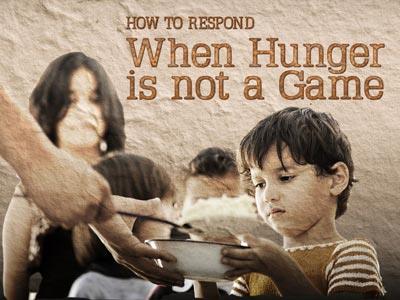-
The Bread From Heaven Series
Contributed by Jm Raja Lawrence on Oct 24, 2025 (message contributor)
Summary: Jesus fed five thousand with five loaves. Their stomachs were full, but their souls remained empty. Today, we discover why Jesus alone satisfies our deepest hunger forever.
The Bread From Heaven
Introduction
Brothers and sisters, gather close this morning as we explore one of the most profound declarations Jesus ever made. In John 6:35, our Savior stands before a hungry crowd and speaks words that echo through eternity: "I am the bread of life."
This statement did not come in a vacuum. The people had just witnessed Jesus feed 5,000 with five barley loaves and two fish. Their stomachs were full, but their souls remained empty. They wanted more bread for their bellies, but Jesus offered them bread for their beings.
Turn with me to Exodus 16, where we find Israel wandering in the wilderness. They cried out for food, and God rained down manna from heaven. Every morning for forty years, this mysterious bread appeared with the dew. But that manna was only a shadow, as Hebrews 10:1 reminds us that the law had only a shadow of the good things to come. The reality stood before them in the person of Jesus Christ.
Today, we will trace the journey from the temporary provision of manna to the eternal satisfaction found only in Christ. We will discover why Jesus is better than anything this world offers, and how we can feed on Him daily. As the psalmist declared in Psalm 34:8, "Oh, taste and see that the Lord is good; blessed is the man who trusts in Him!" This morning, we invite you to taste the goodness of the true Bread from heaven.
1. Manna in the Morning
A. Israel's Daily Bread
Look at Exodus 16:13-15 with me. The Israelites woke up one morning to find the ground covered with a strange, flaky substance. They looked at each other and asked, "What is it?" The Hebrew words "man hu" became the name of their new food: manna.
God designed this provision with purpose. Every morning, without fail, the manna appeared. The people had to go out and gather it before the sun grew hot and it melted away. Each family collected an omer per person, about four pints. Nobody could hoard it. When they tried to store it overnight, it bred worms and stank, as we read in Exodus 16:20.
This daily rhythm taught Israel a crucial lesson: dependence. They could not rely on yesterday's provision for today's need. They could not store up enough to skip tomorrow's gathering. God was training them to trust Him one day at a time. This pattern echoes throughout Scripture, from Lamentations 3:22-23, which tells us His mercies are new every morning, to the prayer Jesus taught us in Matthew 6:11, "Give us this day our daily bread."
The manna itself was remarkable. Scripture describes it as white like coriander seed, tasting like wafers made with honey, according to Exodus 16:31. It could be ground into flour, baked into bread, or eaten raw. Numbers 11:7-8 gives us additional details about its preparation. For forty years, this supernatural food sustained an entire nation in a barren wilderness where nothing else would grow.
B. Temporary Satisfaction
But here is the reality we must face: the manna was temporary. Yes, it filled their stomachs. Yes, it kept them alive through their wilderness journey. Yes, it demonstrated God's faithfulness. But every single person who ate that manna eventually died.
Exodus 16:35 tells us the manna lasted exactly as long as Israel needed it. The day after they ate the produce of Canaan, the manna stopped, as recorded in Joshua 5:12. Its purpose was fulfilled. It had brought them from Egypt to the Promised Land, but it could not give them eternal life.
The crowd in John 6:31 understood this limitation. They quoted Scripture back to Jesus: "Our fathers ate the manna in the wilderness." They knew the story. They celebrated it in their festivals. They taught it to their children. But they also knew their fathers died in that wilderness, never reaching the land flowing with milk and honey. As John 6:49 plainly states, "Your fathers ate the manna in the wilderness, and are dead."
Physical bread, no matter how miraculous its origin, can only sustain physical life. It fills the stomach for a few hours. It provides energy for a single day. Then hunger returns. The cycle repeats. The need never ends. This is why Solomon wrote in Ecclesiastes 6:7, "All the labor of man is for his mouth, and yet the soul is not satisfied."
C. Looking for More
The people came to Jesus with a request that revealed their hearts: "Lord, evermore give us this bread" (John 6:34). They wanted what the Samaritan woman wanted when she asked for living water so she would never have to draw from the well again (John 4:15). They wanted convenience. They wanted comfort. They wanted their physical needs met without effort.
But notice what they were really seeking. They were looking for more because what they had was not enough. The world's bread never satisfies. You can drive the fastest car, live in the biggest house, earn the highest salary, achieve the greatest fame, and still feel empty inside. As Ecclesiastes 5:10 warns, "He who loves silver will not be satisfied with silver; nor he who loves abundance, with increase."

 Sermon Central
Sermon Central



